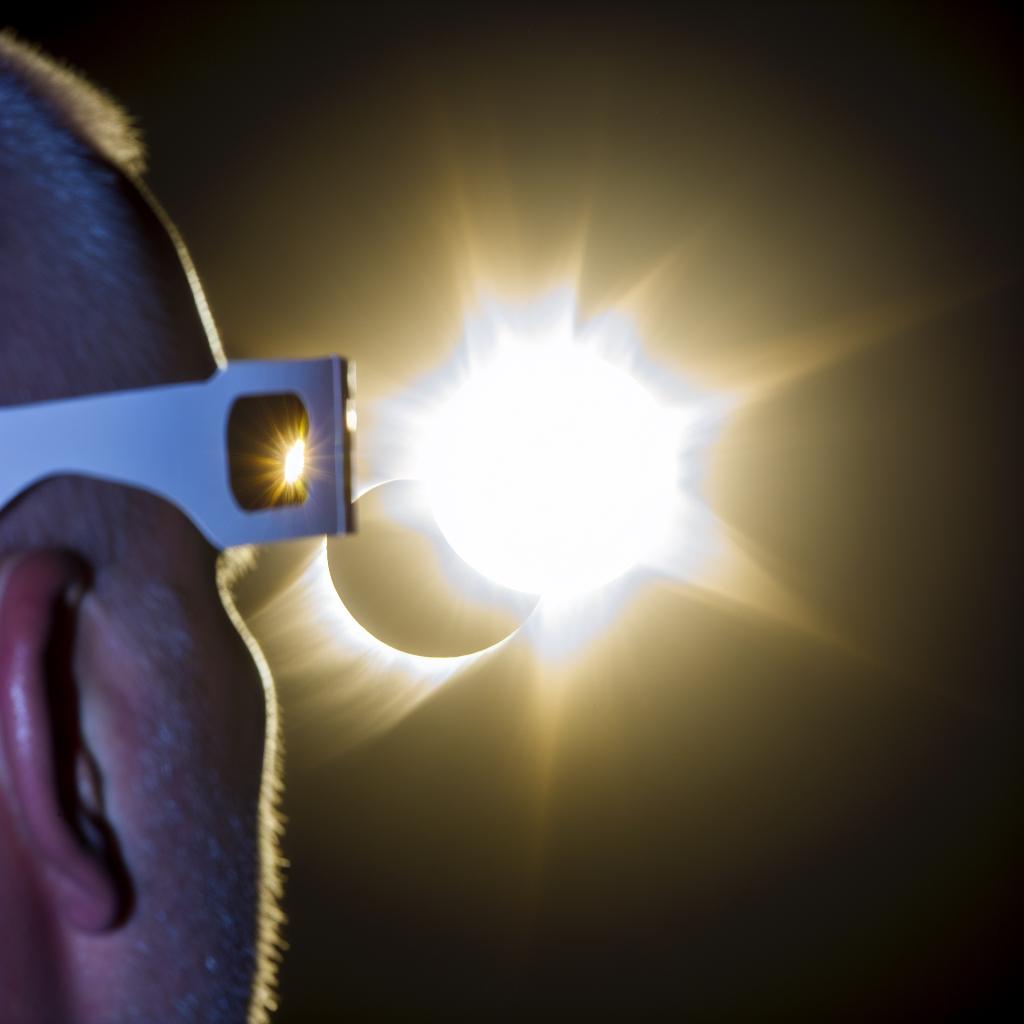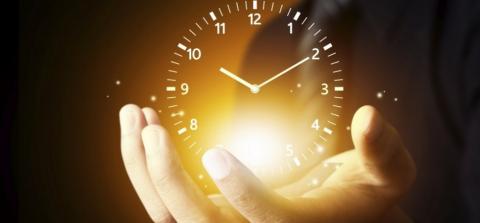SAP Making our lives a lot easier
But what is SAP C/4HANA?

Learn how to safeguard your eyes during a solar eclipse to prevent damage and enjoy this natural phenomenon safely.
Looking directly at the sun during a solar eclipse can be extremely harmful to your eyes. The intense light and radiation emitted by the sun can cause serious damage to the retina, the delicate tissue at the back of the eye responsible for vision. This damage can lead to permanent vision loss or even blindness.
During a solar eclipse, the moon passes between the Earth and the sun, partially or completely blocking the sun's light. This creates a captivating celestial event that many people are eager to witness. However, it's important to remember that even during an eclipse, the sun's rays can still be harmful. In fact, the moon's coverage of the sun can actually make it more tempting to look directly at the sun, as the brightness is reduced. But this is a dangerous misconception that can have severe consequences for your eyes.
When you look at the sun without proper eye protection, the intense light can damage the cells in your retina. This damage can occur quickly and may not be immediately noticeable. Over time, however, the effects can become apparent and irreversible. Therefore, it is crucial to understand and respect the dangers of looking at the sun during an eclipse.
To safely view a solar eclipse, it is essential to choose the right eye protection. Regular sunglasses or homemade filters, such as smoked glass, are not suitable for directly viewing the sun during an eclipse. These materials do not offer sufficient protection against the harmful ultraviolet (UV) and infrared (IR) radiation emitted by the sun.
The only safe way to view a solar eclipse is through specially designed solar eclipse glasses or handheld solar viewers. These glasses and viewers are equipped with solar filters that block out most of the harmful radiation while allowing you to see the eclipse clearly. When selecting solar eclipse glasses, make sure they meet the international standard for safe solar viewing (ISO 12312-2). Additionally, check for any damage or scratches on the lenses, as these can compromise their effectiveness.
It is important to note that ordinary sunglasses, no matter how dark or expensive, cannot provide the necessary protection for viewing a solar eclipse. Using improper eye protection can result in permanent eye damage or vision loss. Therefore, always ensure that you choose the right eye protection specifically designed for viewing solar eclipses.
Here are some important tips to follow for safely viewing a solar eclipse:
- Use proper solar eclipse glasses or handheld solar viewers that meet the international safety standard (ISO 12312-2).
- Check the glasses or viewers for any damage, such as scratches or holes, before use.
- Put on the eye protection before looking at the sun and keep it on throughout the entire duration of the eclipse.
- Do not remove the eye protection while looking at the sun, even if the eclipse is only partial.
- Avoid using cameras, binoculars, or telescopes without the appropriate solar filters, as they can magnify the sun's rays and cause serious damage to your eyes.
- If you wear prescription glasses, keep them on and place the solar eclipse glasses or handheld solar viewer over them.
- Encourage children to use the proper eye protection and supervise them at all times.
By following these tips, you can safely enjoy the awe-inspiring beauty of a solar eclipse without risking harm to your eyes.
Not using proper eye protection during a solar eclipse can have severe consequences for your vision. The intense light and radiation from the sun can cause immediate and long-term damage to your eyes, including:
- Solar retinopathy: This condition occurs when the sun's rays damage the cells in the retina, leading to blurred or distorted vision, blind spots, or even permanent vision loss.
- Photokeratitis: Also known as 'sunburn of the eye,' this painful condition is caused by exposure to intense UV radiation. It can result in redness, tearing, sensitivity to light, and a gritty feeling in the eyes.
- Macular degeneration: Prolonged exposure to the sun's harmful rays can increase the risk of developing macular degeneration, a leading cause of vision loss in older adults.
- Cataracts: UV radiation from the sun can contribute to the development of cataracts, a clouding of the eye's natural lens that can lead to vision impairment or blindness.
These risks highlight the importance of using proper eye protection during a solar eclipse to ensure the safety of your eyes and preserve your vision.
Watching a solar eclipse is a remarkable experience, but it is crucial to prioritize the safety of your eyes. Understanding the dangers of looking at the sun during an eclipse and choosing the right eye protection are essential steps in safeguarding your vision. By following the recommended guidelines and using proper eye protection, you can enjoy the beauty of a solar eclipse without putting your eyes at risk.
Remember, never look directly at the sun without the appropriate eye protection, even during an eclipse. Take the necessary precautions to protect your eyes and ensure that you can continue to appreciate the wonders of the natural world for years to come.

When it comes to buying software to run your small business, SAP may be among the last technology companies that sprint to mind. After all, the...